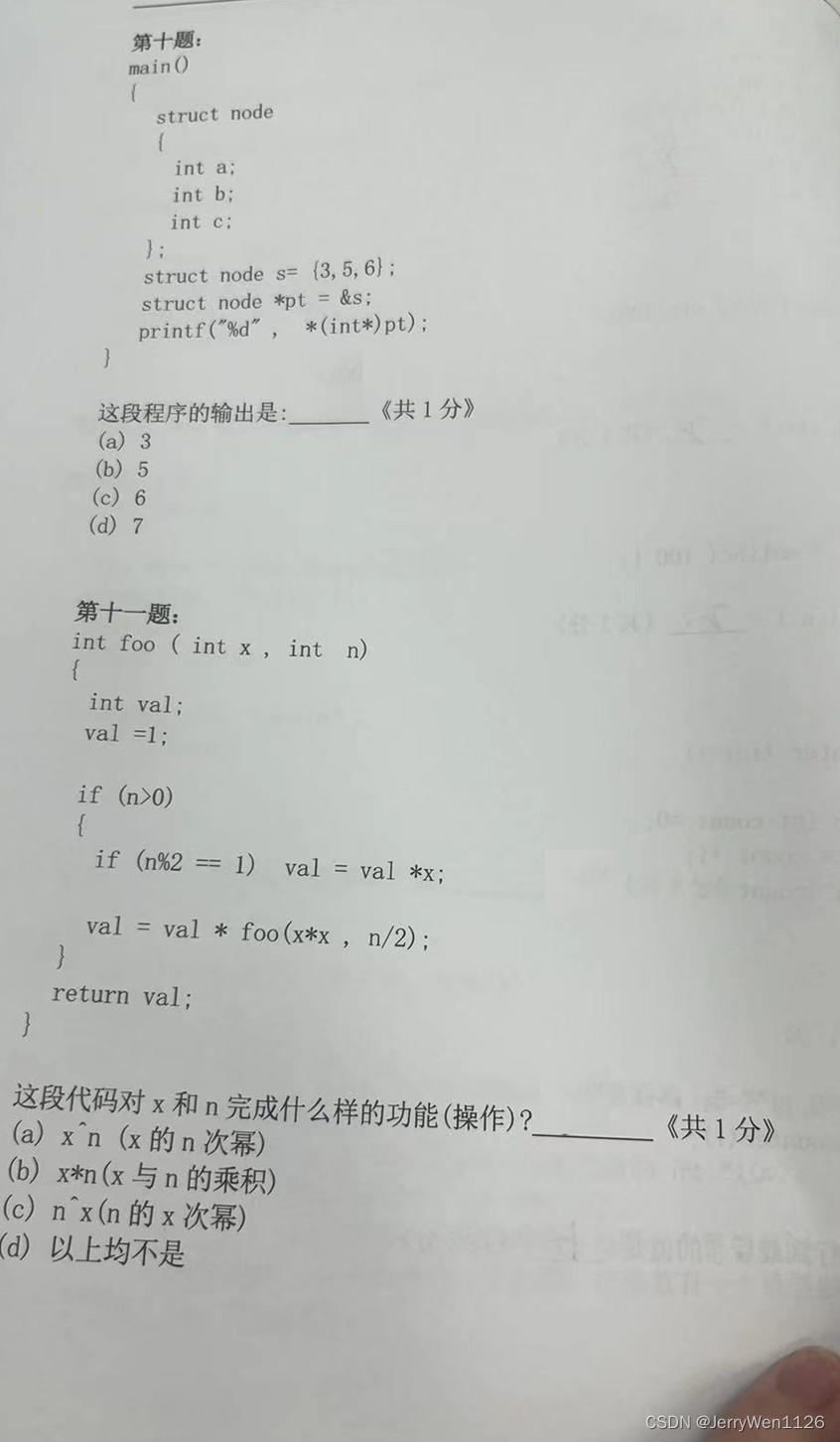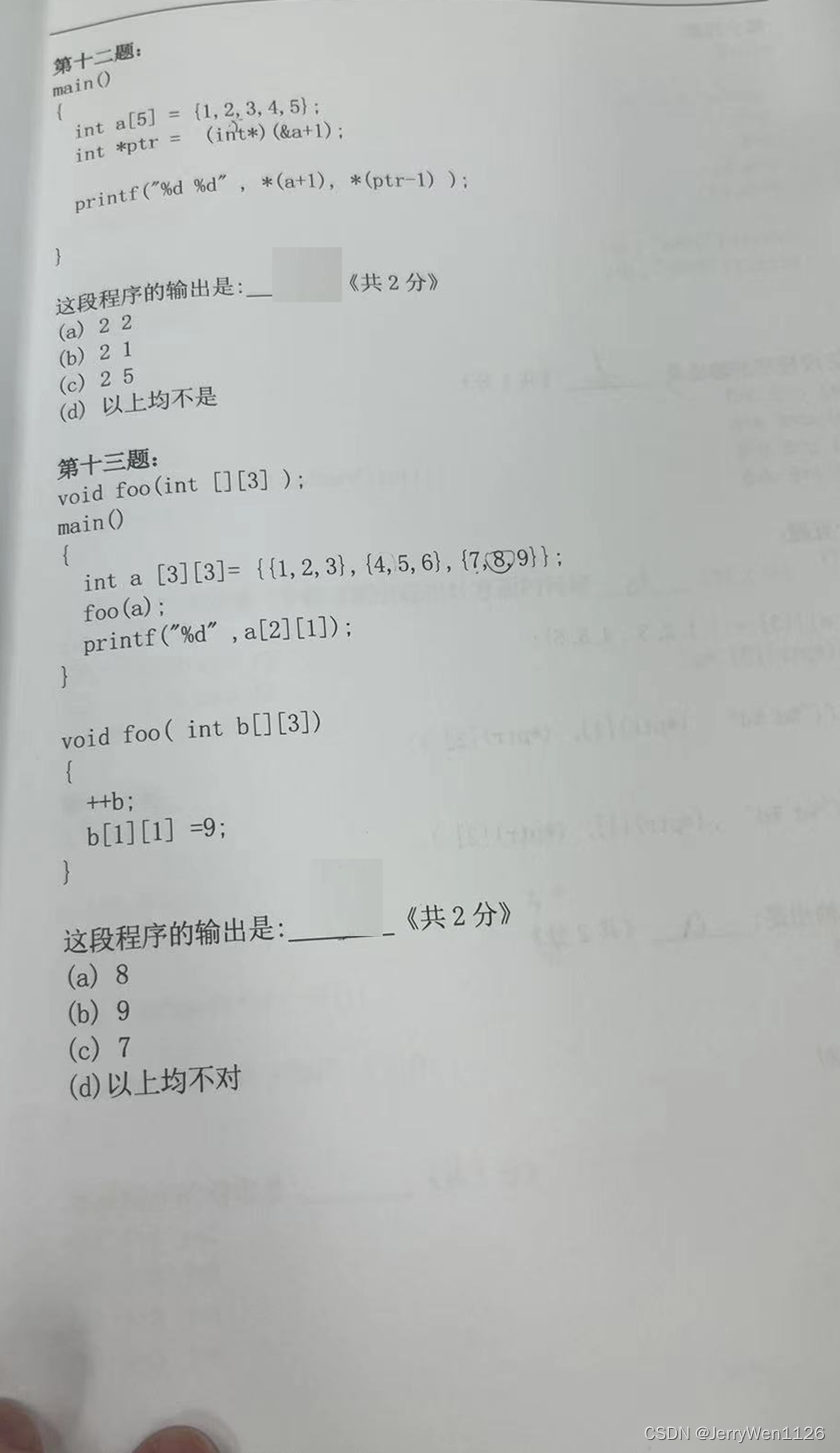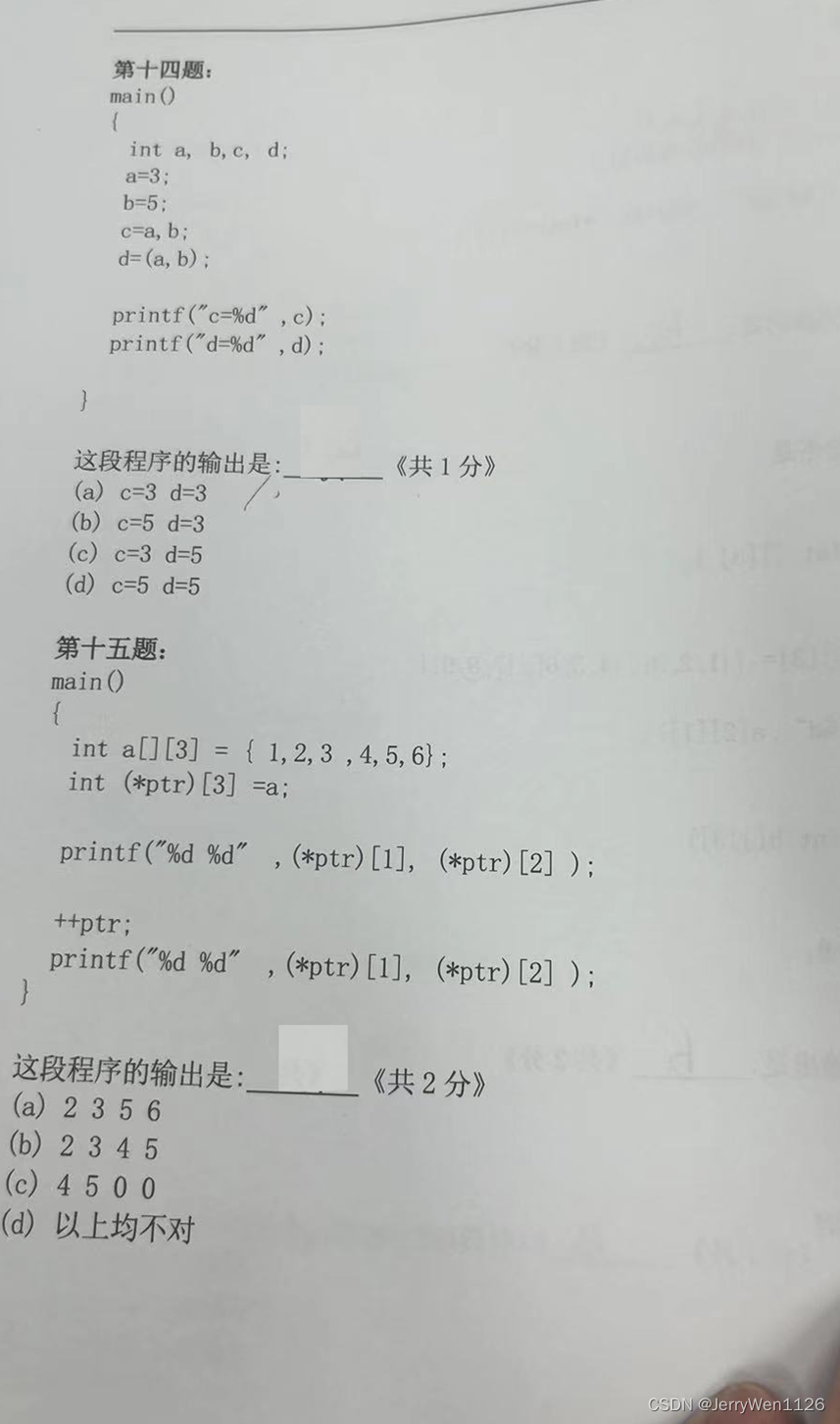





#include <stdio.h>
#include <string.h>
#include <stdlib.h>
//1
void GetMemory_1(char* p){
p = (char *)malloc(100);//值传递
}
void Test_1(void){
char* str = NULL;
GetMemory_1(str);
strcpy(str, "hello world");//段错误
printf(str);
}
//2
char* GetMemory_2(void){
char p[] = "hello world";
return p;//返回局部变量的地址
}
void Test_2(void){
char* str = NULL;
str = GetMemory_2();//悬空指针
printf(str);//段错误或其他垃圾数据
}
//3
void GetMemory_3(char** p, int num){
*p = (char *)malloc(num);
}
void Test_3(void){
char* str = NULL;
GetMemory_3(&str, 100);
strcpy(str, "hello");
printf(str);//hello
}
//4
void Test_4(void){
char* str = (char *)malloc(100);
strcpy(str, "hello");
free(str);//free指向已释放的内存区域
if(str!=NULL){
strcpy(str, "world");//段错误
printf(str);
}
}
//5
int a;//a
int* a;//b
int** a;//c
int a[10];//d
int* a[10];//e
int (*a)[10];//f
int (*a)(int);//g
int (*a[10])(int);//h
int (*(*a)[10])(int);//一个指向有十个函数指针的数组的指针
//6
char str[] = "Hello";//sizeof(str)=6
char* p = str;//sizeof(p)=2
int n = 10;//sizeof(n)=2
//7
void Func(char str[100]){
}
//sizeof(str)=2
//8
void* p = malloc(100);
//sizeof(p)=2
//9
int counter(int i){
static int count = 0;
count = count + i;
return (count);
}
main(){
int i, j;
for(i = 0; i <= 5; i++)
j = counter(i);
}
//b 15
//10
main(){
struct node{
int a;
int b;
int c;
};//2+2+2=6
struct node s = {3,5,6};
struct node* pt = &s;
printf("%d", *(int*)pt);
}
//a 3
//11
int foo(int x, int n){
int val;
val = 1;
if(n>0){
if(n%2==1)
val = val*x;
val = val*foo(x*x, n/2);
}
return val;
}
//a x^n
//12
main(){
int a[5] = {1,2,3,4,5};
int* ptr = (int*)(&a+1);
printf("%d %d", *(a+1), *(ptr-1));
}
//c 2 5
//13
void foo(int [][3]);
main(){
int a[3][3] = {{1,2,3},{4,5,6},{7,8,9}};
foo(a);
printf("%d", a[2][1]);
}
void foo(int b[][3]){
++b;//b->[0][1]
b[1][1]=9;//b[1][1]=*(*(b+1)+1)=a[2][1]
}
//b 9
//14
main(){
int a,b,c,d;
a=3;
b=5;
c=a,b;
d=(a,b);
printf("c=%d", c);
printf("d=%d", d);
}
//3 5 c
//15
main(){
int a[][3] = {1,2,3,4,5,6};
int (*ptr)[3] = a;
printf("%d %d", (*ptr)[1], (*ptr)[2]);
++ptr;
printf("%d %d", (*ptr)[1], (*ptr)[2]);
}
//2 3 5 6 a







 本文通过实例展示了C语言中的内存管理技巧,包括动态分配、局部变量、函数指针以及结构体操作,强调了栈与堆的区别,并提到了可能遇到的常见陷阱,如悬空指针和栈溢出。
本文通过实例展示了C语言中的内存管理技巧,包括动态分配、局部变量、函数指针以及结构体操作,强调了栈与堆的区别,并提到了可能遇到的常见陷阱,如悬空指针和栈溢出。














 106
106











 被折叠的 条评论
为什么被折叠?
被折叠的 条评论
为什么被折叠?








